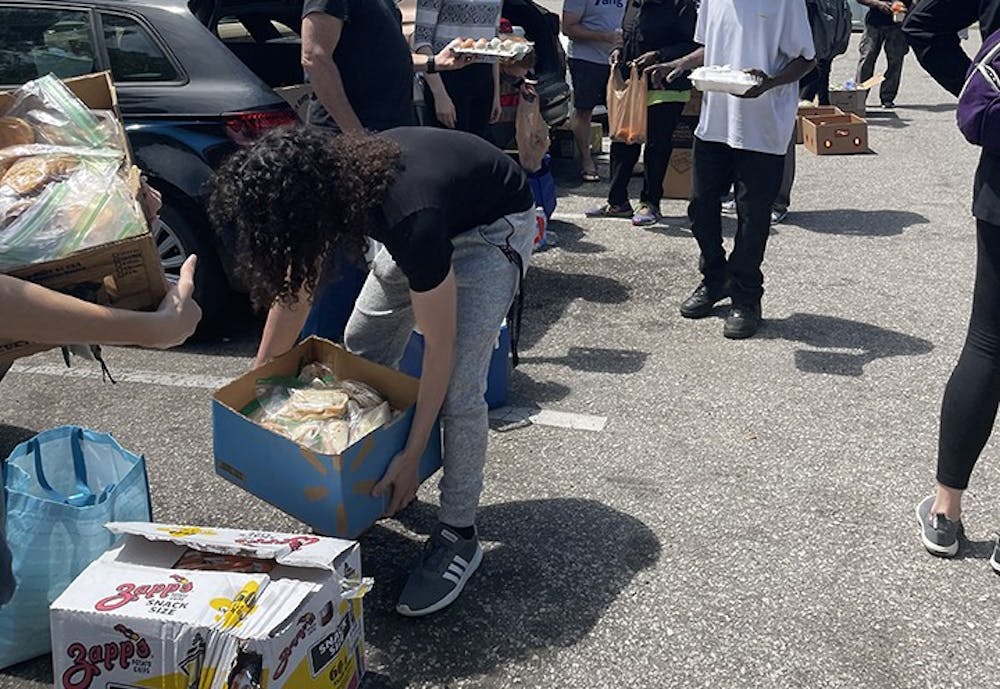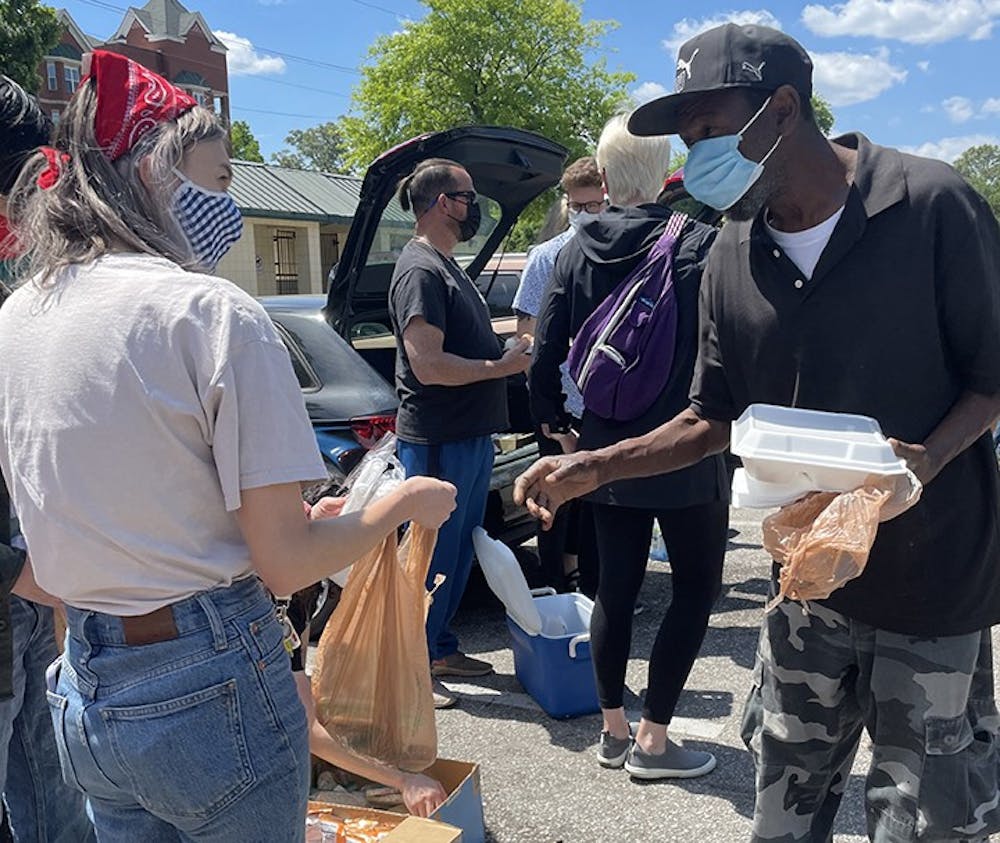Food Not Bombs (FNB), an independent collective of volunteers, distributed food to community members in need on Sunday afternoon at Finley Park.
FNB is a community partner with Harvest Hope Food Bank and receives food donations from Trader Joe's and Food Lion.
Third-year electrical engineering student Ramy Alawar said FNB receives food that would normally be thrown out.
"We get [the food] from grocery stores and places that would otherwise throw out the food because, basically, this country discards 40% of the food that we produce," Alawar said.
Second-year journalism student and volunteer Charlotte Morrison said anyone is eligible to take food.

"Anyone can get food if they need it, no matter who you are, there's no needs testing, it doesn't matter. If you're hungry, you get food, that's kind of a philosophy," Morrison said.
Morrison helps prepare the food for distribution.
"Every Saturday, we make sandwiches, and about maybe three to four people come every week to make sandwiches," Morrison said. "We make around 30 to 50 each weekend."
FNB has around 15 cooks who help make the hot meals the organization distributes, according to McDonald.
Morrison said the homeless people FNB helps are often ignored by the community.
"People see homeless people, like people who are houseless, as not real people," Morrison said. "Everyone is a human; they're humans as well. I think it's important to talk to them through your conversation, especially if they feel like they're almost invisible to an extent."
Alawar has been involved with FNB for around six months and said it is currently looking to change locations due to police repression in the area.
"They put up a fence recently that is basically designed for 'population control,'" Alawar said. "If you ask people on the streets, they basically say that there are less people here because they're being run out by the police."
USC law school graduate Tyler McDonald has worked with FNB in Columbia for roughly a year and manages its social media pages.
McDonald said because of the city remodeling Finely Park and blocking off areas that are notable places for the homeless community, FNB is being forced to look elsewhere for places to hold its food distribution events.
"We would love to stay in Finley because it's a great area, and a great place to distribute, and the people like it there, but right now we're being forced to find alternate options because the police are harassing people," McDonald said.
USC students started the Columbia chapter in 2002, which has become one of the many chapters across the country.
Alawar said FNB does not have official leadership.
"The organization itself isn't explicitly, you know, socialist, but it comes from socialist roots, and that's kind of the philosophy," Alawar said. "There isn't any formal hierarchy and formal leadership, and that's where that stems from."
FNB was created in the '70s in protest of the Vietnam War and nuclear weapons, but the messages about lack of government care have remained the same to this day.
Morrison said the people of South Carolina are not taken care of as they should be.
"I think that our military budget is in, like, the trillions of dollars, and we're out here using what we can to feed people," Morrison said. "People don't take care of this state and take care of the citizens like they should, so it's kind of — I think it's our duty to step in and, like, make sure people are getting taken care of."
Alawar said it's important to know FNB is not a charity but a "mutual aid."
"We try to, instead of doing what a charity does, where they basically just hand out food for the sake of it, we try to get people to another stage in which they can kind of reciprocate that aid in a way of basically getting them independent from the system that's kind of left them out here to be starving," Alawar said.
Food Not Bombs distributes food to the community every Friday and Sunday.

